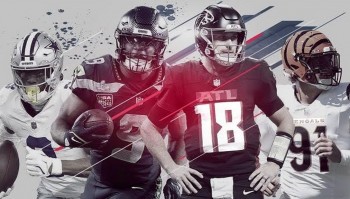How To Check and Pay The Traffic Fine Online In The U.S 2024
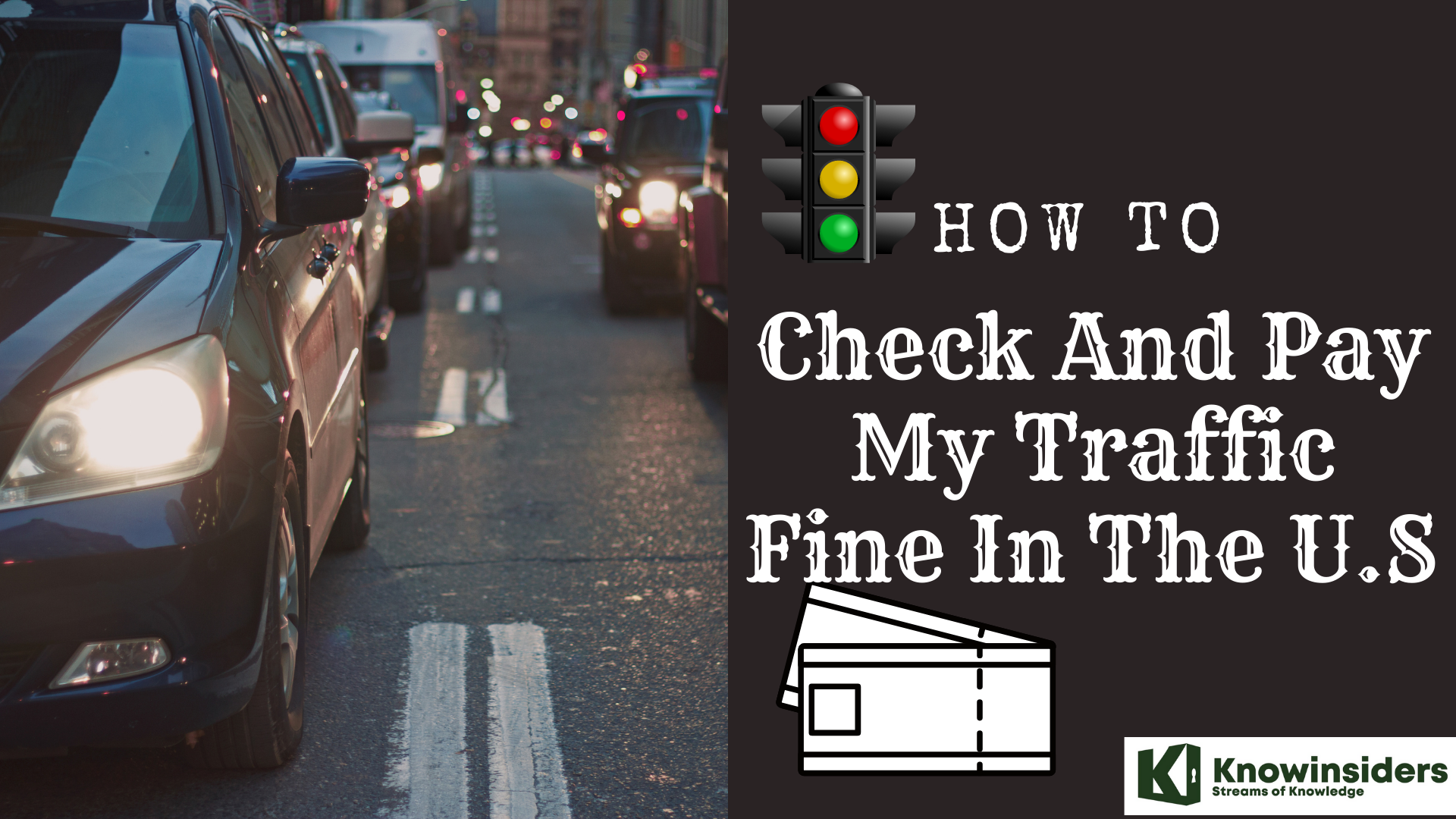 |
| How To Check And Pay My Traffic Fine In The U.S |
| Table Content |
This is a comprehensive guide with instructions on how to check or look up the amount of your ticket fine, how to pay it, and the regulations you must abide by.
A traffic ticket is a document that a law enforcement officer issues to a driver or other user of the road to notify them that they have broken traffic laws. Traffic tickets typically come in two varieties: they can be for a moving infraction, like going over the speed limit, or they can be for a stationary infraction, like parking infractions, for which the ticket is also known as a parking citation or parking ticket.
It's crucial to be aware of traffic laws and penalties if you reside in the US in case you get in trouble and have to pay a fine. View the instructions in the following article to find out how to check and pay your traffic fine.
What is a Traffic Violation in America?
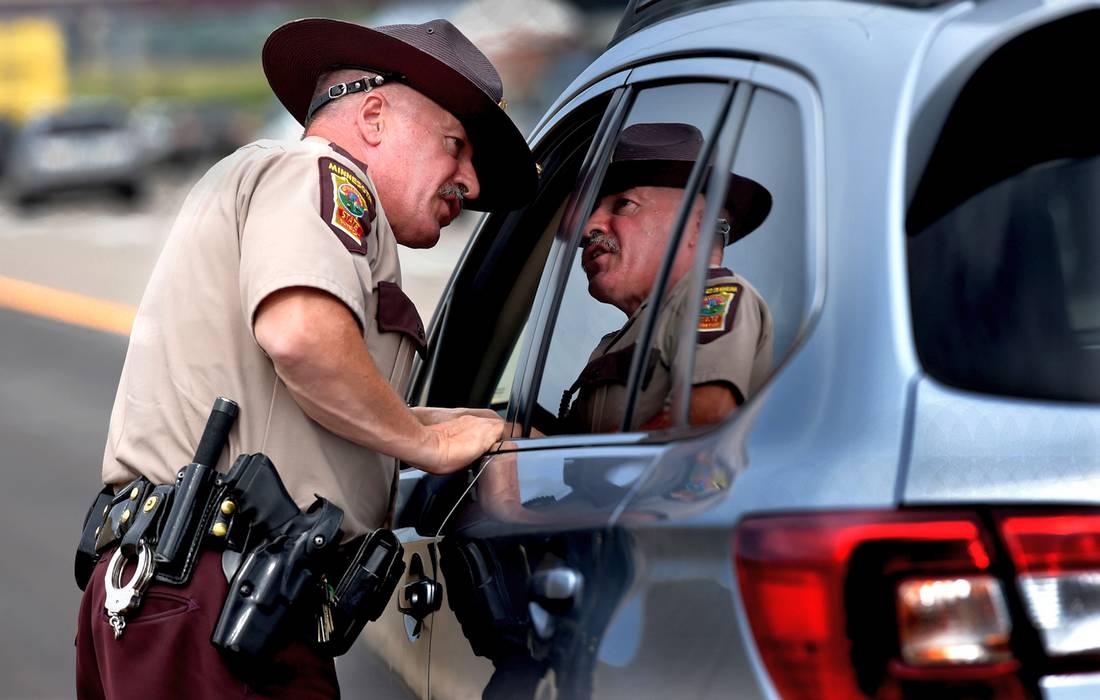 |
| Photo: Getty Images |
When drivers violate the laws that govern vehicle operation on streets and highways, they commit a traffic violation. These types of violations are quite common. More than 90% of Americans over the age of 16 have a driver's license, and many have multiple vehicles registered to their names.
Every year, trillions of miles are driven and millions of traffic violations are committed, including speeding, running red lights, faulty equipment, parking violations, and more. Local police usually issue traffic violations, which are then handled by local branches of state courts. They are treated as civil violations rather than criminal charges in some states.
How to Check or Look up your Traffic Ticket Fines in the U.S
If your camera violations or parking tickets are stored in the Department of Finance's database, you can check up details about them.
You can use the parking or camera violation online lookup to find out:
→ How many unpaid violations you have on your registered vehicles
→ How much you owe
→ Whether a ticket is in judgment
→ If your vehicle may be booted or towed due to judgment debt
→ Payment status
→ Hearing or appeal status
Depending on the type of ticket, information about parking tickets is typically accessible in the Department of Finance's online system within a specific amount of time.
Ticket printed by computer: in five working days
Ticket written by hand: in ten to fourteen days
Typically, the system has access to bus lane, red light, and speed camera violations three to four weeks after the Notice of Liability (NOL) date.
What You Need
You will need the 10-digit ticket or NOL number in order to look up a parking ticket or camera violation. If you are unable to obtain the number, you can check the status by giving:
→ Your license plate number
→ The state that issued your license plate
→ The type of plate, such as passenger, commercial, or vanity
→ Look up your parking tickets or camera violations.
→ If you don't know your license plate number or your ticket or NOL number, 311 can look it up for you.
→ Call 311 for status.
Read More: Why Cars And Trucks So Big In America?
How to Pay Traffic Tickets
Traffic Payment Options:
Clerk's Office Public Counter, courthouse drop box, or by mail:
Personal Checks
Money Orders
Cashiers' Checks
Cash (in person only!)
Credit Card (American Express, Discover, MasterCard and VISA) - Public Counter
Internet:
Credit Card (American Express, Master Card or VISA only)
Debit Card
If you wish to pay by credit/debit card, you can do it on the internet. There will be an additional convenience fee charged.
Traffic Tickets and Strict Liability
Most traffic tickets are issued for "strict-liability" violations. This implies that a person cannot be found guilty of an offense without having any specific criminal intent. Authorities only need to provide evidence that the accused person carried out the illegal act. Even if a driver speeds "accidentally," it is still illegal because the inquiry does not consider the driver's intentions or mental state. The following driving infractions are commonly classified as strict-liability traffic violations:
-Speeding
-Failure to yield
-Turning into the wrong lane
-Driving a car at night without headlights
-Parking in a fire lane
-Driving with expired inspection or registration stickers
Moving Violations and Non-Moving Violations
Anytime a driver disobeys a traffic law while operating a moving vehicle, it is considered a moving violation. Speeding, running a red light or stop sign, and changing lanes without signaling are a few instances of moving violations.
On the other hand, a non-moving infraction typically has to do with parking or broken equipment. A few instances are pulling up in front of a fire hydrant or on a crosswalk, driving with your taillights broken, or making too much noise from your muffler.
Speeding Tickets
There are three types of speeding laws in most states:
Laws that establish specific maximum speed limits in specific situations. For example, a state may set different maximum speeds for vehicles on state highways (65 mph), residential streets (35 mph), and school zones (25 mph). These statutory limits apply even if no speed limit signs are present.
Laws allowing local governments or other regulatory bodies to set maximum speed limits. A state, for example, may allow local governments to govern traffic flow in their neighborhoods and make speed limits legally enforceable as long as they are clearly posted.
Laws requiring drivers to operate their vehicles at a reasonable speed under the circumstances. Even if the posted maximum speed limit on a rural highway is 65 mph, driving at that speed in a torrential rainstorm at night may result in a speeding ticket, because driving at that speed may be deemed unsafe due to the hazardous road and weather conditions.
Read More: Top 10 Most Dangerous Roads In The US
Types of Traffic Tickets in the US
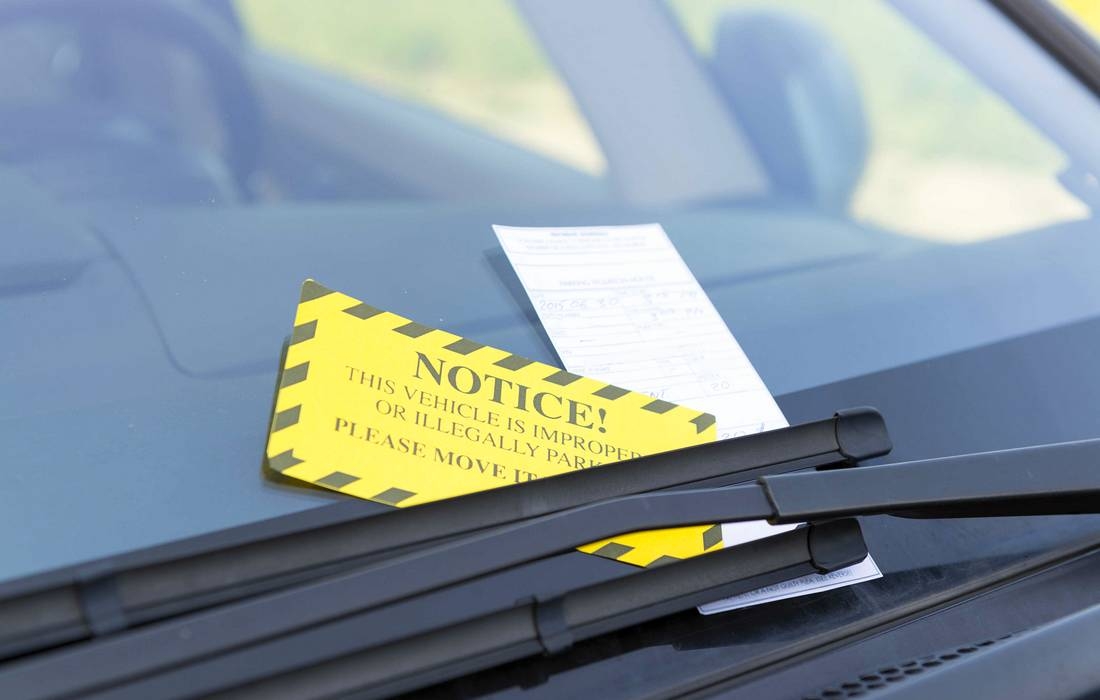 |
| Photo: Getty Images |
Speeding
One of the most frequent offenses that results in a traffic ticket is speeding. Discover the various categories of speeding laws, as well as links to resources about state-specific speeding laws and typical fines associated with speeding.
Distracted Driving
Distracted driving is at an all-time high due to the increase in cell phone usage. Find out about laws pertaining to primary enforcement, handheld cell phone use, texting while driving, general distracted driving, and more.
Driving Without a Valid Driver's License
It is illegal to drive without a valid driver's license in every state. To find out more about operating a vehicle without a valid license and the associated penalties, find your state's law on the subject.
Leaving the Scene of an Accident
In most states, it is a serious crime to flee the scene of an accident, particularly if there were injuries involved. Find out about the components of hit-and-run crimes and what a driver must do following an accident.
Reckless Driving
Driving "recklessly" or with a "willful" disregard for the safety of others is illegal in the majority of states. Information on actions deemed reckless, such as racing and dodging police, is provided in this section.
Running a Red Light or Stop Sign
One of the riskiest driving violations is running a stop sign or red light. To find out the penalties for turning on a red light and whether it's legal to do so, consult your state's traffic control signal laws.
How Much Does a Speeding Ticket Cost?
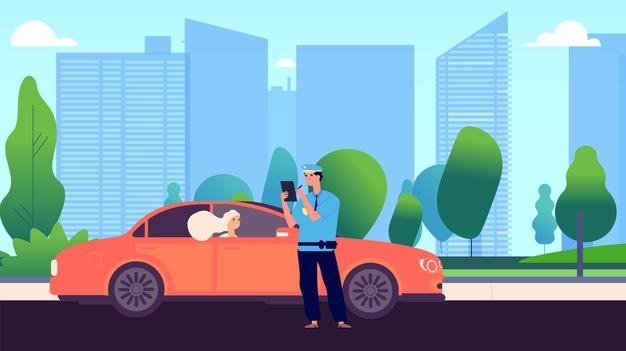 |
| Photo: Freepik |
The cost of speeding is high. In the US, the average annual premium for full coverage auto insurance with a speeding ticket is $2,029, while the average premium for a driver with a spotless record is $1674.
The average cost of a speeding ticket is hard to calculate because many states, including Michigan, Pennsylvania, and Wyoming, base their fines on the number of miles that the driver exceeds the speed limit. Nonetheless, the average penalty in most states is $150. That amount can also include court fees and other expenses.
Key speeding ticket statistics
42 million speeding tickets are written each year in the U.S. (CreditDonkey)
More than 20% of U.S. drivers receive a speeding ticket each year. (CreditDonkey)
The average penalty for speeding is $150, plus court costs and fees. (LawFirms)
1 in 6 Americans, or 112,000 drivers, get a speeding ticket each day.(Modern Attorney)
Options to Handle a Traffic Ticket
Upon receipt of a traffic citation, the driver may have the following options, depending on the laws governing the state or county:
-Pay the ticket and admit guilt
-Attend driver's training or traffic school
-Contest the ticket in court
-Request a mitigation hearing
Drivers who wish to admit guilt without appearing in court may pay the fine in person or by mail. Many states allow drivers to avoid points on their license by attending traffic school. Each state has its own system for assigning point values to traffic violations. A driver's license can be suspended if he or she accumulates a certain number of points in a given timeframe.
The individual may appear in court or mail in a written statement admitting to the violation during a mitigation hearing. They may, however, explain the circumstances surrounding the infraction. The judge may reduce the penalty based on your explanation and driving record.
Those who wish to enter a not guilty plea may appear in court and request a contested hearing. You are free to testify or present evidence or witnesses to prove your innocence. At their own expense, the individual has the right to hire a lawyer to represent them at this hearing. If you want the citing officer to be present, you should notify the Court Clerk. The case will be dismissed if the judge determines that the infraction was not committed. If you are found guilty of the offense, you will face the full penalty.
A default judgment will be entered against you if you are charged with a traffic infraction and fail to appear or pay the fine by the specified date. Your driver's license may be suspended, and/or an arrest warrant issued.
Pleading guilty to a traffic infraction, such as speeding or unsafe lane change, results in a clean criminal record for the driver. If the case is unlikely to be won at trial, prosecutors may offer to reduce a drunk-driving charge to a traffic infraction. A weak case may include an issue with the arresting officer's conduct, the driver's chemical test, or another piece of evidence that could exonerate the offender. These are typically only available when the driver's blood alcohol content (BAC) is close to the legal limit of.08 percent.
Read More: 10 Tricks to Save you Fuel When Driving an Automatic Car
How much does a speeding ticket cost?
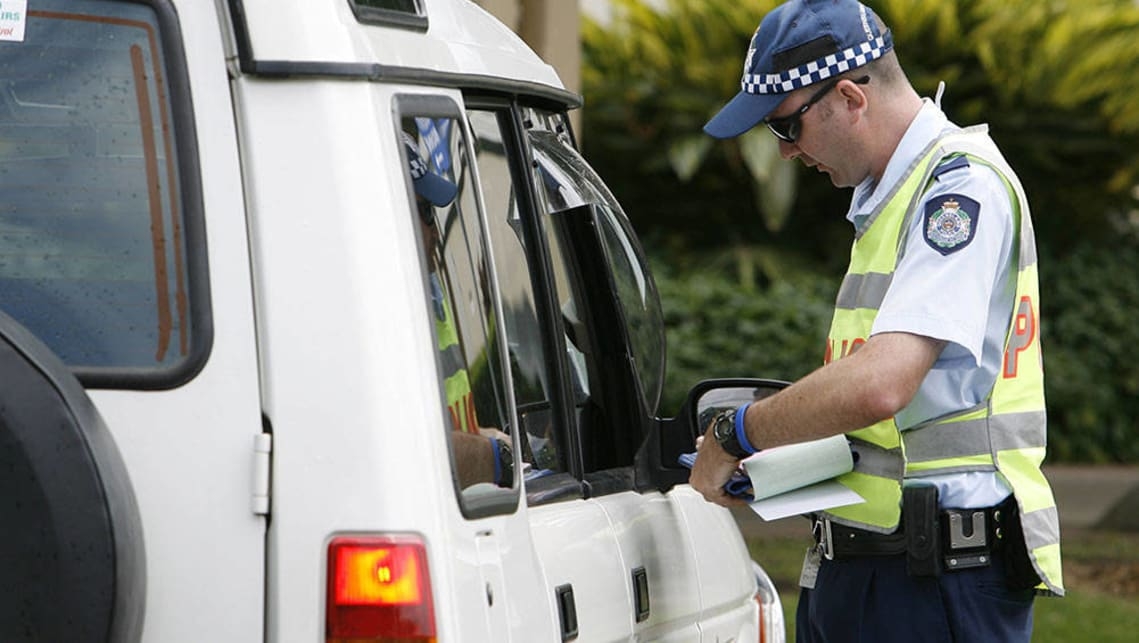 |
| Photo: CarsGuide |
The terms citation and ticket are used interchangeably, but they refer to the same thing: a written record detailing a traffic violation.
According to the most recent state speeding penalty data for 2021, the average cost of a speeding ticket is $150, and the average increase for full coverage car insurance is $355. However, the cost of a speeding ticket can vary greatly depending on several factors, including:
Speed: The amount of your speeding ticket will mostly depend on your actual speed; faster speeds can occasionally result in criminal charges, license suspensions, and even jail time.
State: It matters where you live as well. The penalties for speeding are far harsher in some states than in others, such as Nevada. After just one speeding ticket, drivers in Louisiana, who already face the highest average annual full coverage car insurance rates at $2,724, will typically see an increase in their car insurance of $793.
Type of area: In comparison to fines on a regular road, you may be subject to far harsher consequences if you are caught speeding in a high-risk area like a school, place of employment, or construction zone.
Severity: The repercussions of your speeding ticket are probably going to be far worse if a police officer witnesses you engaging in other traffic infractions while speeding, like reckless or intoxicated driving.
Driver record: If you have a history of speeding or multiple moving violations on your record, you could face much harsher penalties than a first-time offender.
Other costs of speeding tickets
There can be a range of outcomes from speeding. The fines you incur will ultimately be determined by the local court system and the officer who conducted the traffic stop. Additional repercussions for speeding may include:
License suspensions: If your offense is severe enough or your driver record shows a pattern of speeding, you could have your license suspended for anywhere from one month to over a year.
Bodily injury: If you hit someone and injure or kill them while speeding, your penalties will be much more severe.
Points: It's simple to accumulate points for speeding on your driving record, which can result in steep fines, license suspensions, or even the seizure of your vehicle. Your auto insurance rates will go up if you accrue points.
How does a speeding ticket impact your insurance?
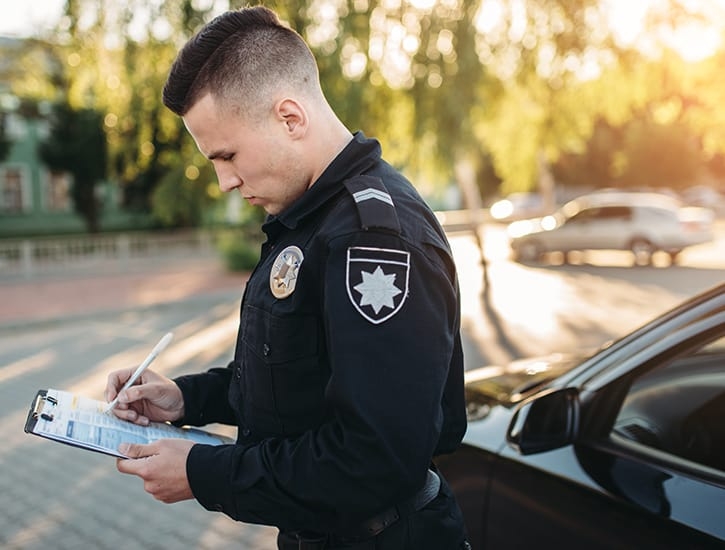 |
| Photo: Getty Images |
Without a doubt, speeding has an effect on your auto insurance costs. Annually, the average cost of auto insurance is $1,674. However, if you get a speeding ticket, it could cost you an additional $355 annually, for an average monthly premium of $2,029 annually.
Speeding ticket costs by state
Costs for speeding, including penalties and car insurance hikes, vary greatly. Here is a quick look at the most and least expensive states for increased car insurance rates after one speeding ticket.
Most expensive states for car insurance after a speeding ticket
We consider the total average full coverage premium when you have a speeding ticket on your record in order to identify the most expensive states for speeding tickets in terms of your auto insurance costs. The states with the highest prices are Florida, Michigan, and Louisiana.
| State | Average annual full coverage premium with a speeding ticket |
| Louisiana | $3,517 |
| Florida | $3,352 |
| Michigan | $3,164 |
Least expensive states for car insurance after a speeding ticket
Certain states have more lenient policies for auto insurance companies than others. In Maine, Idaho, or Ohio, you should still be able to find affordable auto insurance if you get a speeding ticket. In general, the cost of auto insurance increases following a speeding incident is less in other states like Vermont, Hawaii, Washington, and Wisconsin.
| State | Average annual full coverage premium with a speeding ticket |
| Maine | $1,135 |
| Idaho | $1,213 |
| Ohio | $1,219 |
Speeding ticket costs by state
The penalties for speeding vary significantly by state, with some states imposing much stricter penalties than others.
| State | Maximum Speeding Ticket Fine | Average full coverage insurance increase post-speeding | Average annual full coverage premium with speeding ticket |
| Alabama | $500 | $337 | $1,960 |
| Alaska | $300 | $305 | $1,864 |
| Arizona | $500+ | $459 | $2,006 |
| Arkansas | $500 | $403 | $2,317 |
| California | $250 | $842 | $2,907 |
| Colorado | $100 | $425 | $2,441 |
| Connecticut | $90 | $253 | $2,098 |
| Delaware | $95 | $313 | $2,088 |
| District of Columbia | $300 | $338 | $1,997 |
| Florida | $250 | $330 | $2,694 |
| Georgia | $500 | $465 | $2,447 |
| Hawaii | $500 | $149 | $1,276 |
| Idaho | $300 | $168 | $1,213 |
| Illinois | $1,500 | $368 | $1,853 |
| Indiana | $1,000 | $268 | $1,522 |
| Iowa | $625 | $210 | $1,470 |
| Kansas | $500 | $330 | $2,028 |
| Kentucky | $100 | $467 | $2,595 |
| Louisiana | $500 | $616 | $3,340 |
| Maine | $500 | $170 | $1,135 |
| Maryland | $500 | $316 | $2,193 |
| Massachusetts | $50+ | $471 | $1,694 |
| Michigan | Varies | $572 | $2,881 |
| Minnesota | $1,000 | $419 | $2,062 |
| Mississippi | $500 | $340 | $2,122 |
| Missouri | $1,000 | $297 | $1,958 |
| Montana | $200 | $325 | $2,062 |
| Nebraska | $30 | $236 | $1,767 |
| Nevada | $1,000 | $510 | $2,755 |
| New Hampshire | $350 | $254 | $1,529 |
| New Jersey | $200 | $244 | $2,001 |
| New Mexico | $200 | $262 | $1,681 |
| New York | $600 | $227 | $2,548 |
| North Carolina | $100 | $720 | $2,045 |
| North Dakota | Varies | $247 | $1,511 |
| Ohio | $500 | $185 | $1,219 |
| Oklahoma | $205 | $373 | $2,246 |
| Oregon | $2,000 | $309 | $1,655 |
| Pennsylvania | Varies | $186 | $1,662 |
| Rhode Island | $250+ | $408 | $2,426 |
| South Carolina | $200 | $294 | $1,806 |
| South Dakota | $500 | $279 | $1,921 |
| Tennessee | $50 | $260 | $1,598 |
| Texas | $200 | $235 | $2,058 |
| Utah | $870 | $303 | $1,609 |
| Vermont | $1,000 | $197 | $1,404 |
| Virginia | Varies | $330 | $1,634 |
| Washington | $250 | $200 | $1,376 |
| West Virginia | $500 | $258 | $1,757 |
| Wisconsin | $300 | $221 | $1,407 |
| Wyoming | Varies | $537 | $2,032 |
Court fees and fines are additional.
Is a speeding ticket a misdemeanor or a felony?
The classification of a speeding ticket is based on multiple variables. Your speeding violation could be classified as an infraction, misdemeanor, or felony depending on your jurisdiction. The majority of speeding tickets are considered minor infractions and carry no criminal consequences. This can include going too fast as well as other infractions like not stopping, yielding, signaling, using the appropriate lighting, or fastening your seat belt.
How your speeding ticket is handled may also depend on your driving record and how serious the incident was. You will probably be subject to harsher penalties for incidents involving property damage, injuries, or fatalities than for incidents involving no losses at all. Furthermore, driving more than a specific number of miles per hour over the posted limit is considered reckless driving in some states, and it can result in a misdemeanor or felony. In a school zone, there are almost always going to be harsher penalties for speeding. In addition, drivers with a history of multiple speeding tickets or other infractions are probably going to suffer more severe penalties than those with a spotless driving record.
The court trials for violations follow different procedures. More serious offenses are typically tried in criminal court, while less serious offenses are typically heard in traffic court. The law in each state and local jurisdiction governs this differently, though.
Typical Differences Between Traffic Court and Criminal Court
| Traffic court | Criminal court |
|---|---|
| Minor speeding Failing to stop at a stop sign Running a red light Texting while driving Following too closely Changing lanes unsafely | Extreme speeding Property damage Driving under the influence (DUI) Driving while intoxicated (DWI) Reckless driving Vehicular homicide or manslaughter |
Unless there is a more serious case involving a repeat offender or one that results in an accident that causes losses and damages of some kind, the majority of speeding cases are handled in traffic court. If you're not sure how different speeding offenses are handled in your jurisdiction, check the local laws or consult an attorney in the area.
Impact of a Guilty Plea in Traffic Court
One of the most frequent queries after receiving a traffic citation is "should I just plead guilty and pay the ticket"? Prior to making a decision, keep in mind that the infraction will remain on your record for the next three to five years in most states, and seven years if you live in Florida. Insurance companies have the ability to review their clients' driving histories and will raise their rates if they discover a ticket. Furthermore, if you enter a guilty plea, you will automatically be assessed the maximum fine for the infraction.
Most states don't require proof of specific criminal intent in order to find someone guilty of a minor traffic infraction. Strict liability is the term for this idea. For crimes with strict liability, proof that the individual accused of the crime truly committed the crime is all that is required.
Some examples of these are:
Failure to use turn signals
Failure to yield
Turning into the wrong lane
Driving a vehicle with burned-out headlights
Failure to use tow-bars when towing another vehicle
Parking next to a yellow curb
Parking in a handicap spot without the required permit
Overdue parking meters
Exceed the speed limit
If there is reliable evidence that the individual was speeding, it does not need to be proven that the driver intended to exceed the speed limit.
What are the DLC and NRVC?
The Driver License Compact (DLC) has been signed by the majority of states. "One Driver, One License, One Record" is the theme of this. Traffic violations issued to drivers licensed in another state are reported to the driver's home state under the DLC. The home state will treat the offense as if it occurred within its borders, and its laws will apply to the out-of-state offense. The American Association of Motor Vehicle Administrators (AAMVA) keeps track of which states have signed on to the DLC agreement.
The Non-Resident Violators Compact (NRVC) requires member states to suspend the driver's licenses of individuals who receive traffic tickets for moving violations in other states and fail to pay them. The individual's driver's license will be suspended until he or she complies with the terms of the citation. It is up to the NRVC member states to decide whether or not to apply it to residents.
In extreme cases, a driver cited for a traffic violation in a jurisdiction other than their home jurisdiction may be required to post collateral or bond in order to appear for trial at a later date. If the offender is unable to do so, he or she may be detained until the collateral or bond is posted. In some states, they may be taken straight to court for a trial.
Non-moving violations are not supposed to be included in the compact. A member state may choose to suspend an individual's license voluntarily if he or she does not pay an out-of-state ticket for an equipment violation such as loud exhaust.
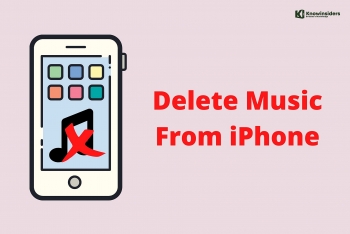 How to Delete All Songs or Music from iPhone with Simple Steps How to Delete All Songs or Music from iPhone with Simple Steps If you need to free some space on your iPhone, deleting music is a good place to start. Check out this article to know how ... |
 How to Celebrate Lunar New Year In The US: Taboos and Superstitions How to Celebrate Lunar New Year In The US: Taboos and Superstitions Lunar New Year is one of the most important Asian holidays of each year. How is Lunar New Year celebrated in the US? |
 How To Celebrate 'Love Your Pet Day': Date, History and Meaning How To Celebrate 'Love Your Pet Day': Date, History and Meaning National Love Your Pet Day is a wonderful excuse for pet owners to show their beloved pets just how much they care. Read on to ... |
 How to Celebrate Abraham Lincoln’s Birthday: Date and Top Quotes How to Celebrate Abraham Lincoln’s Birthday: Date and Top Quotes In February, the US celebrates the birth of one of the most important figures in American history: President Abraham Lincoln. |



















